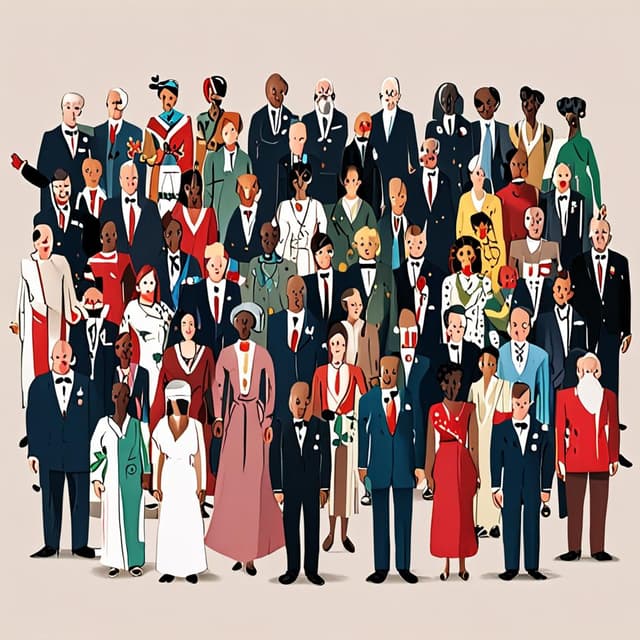
| Name | Non-Aligned Movement (NAM) |
| Legacy | Facilitated decolonization • Shaped the post-World War I global landscape • Promoted a more pluralistic international system • Influenced modern geopolitics |
| Founded | 1920s and 1930s |
| Purpose | Advocate for national sovereignty • Promote self-determination • Establish a multipolar world order independent of major powers |
| Key Figures | Jawaharlal Nehru • Gamal Abdel Nasser • Josip Broz Tito • Sukarno |
| Member States | Countries emerging from colonial rule in Latin America and Asia |
The Non-Aligned Movement (NAM) was an international organization formed in the 1920s and 1930s that advocated for national sovereignty, economic development, and a multipolar world order independent of the dominance of the major powers. Consisting primarily of Latin American and Asian countries emerging from colonial rule, the NAM sought to counterbalance the political, economic, and military influence of the Western imperial powers and the growing Soviet sphere of influence.
The roots of the Non-Aligned Movement can be traced to the 1920s and 1930s, as newly independent countries in Latin America and Asia began coordinating their foreign policy positions and asserting their right to self-determination. Key early proponents included Rómulo Betancourt of Venezuela, José Carlos Mariátegui of Peru, Jawaharlal Nehru of India, and Sun Yat-sen of China.
These leaders recognized the need for developing nations to unite and resist being drawn into the rivalry between the Western capitalist powers and the nascent communist bloc. They advocated a "third way" that would allow their countries to chart an independent course, focus on economic development, and resist neo-colonial interference.
The first major conference of the Non-Aligned Movement was held in Montevideo, Uruguay in 1927. It brought together representatives from over 20 countries who signed the Montevideo Convention, establishing the core principles of national self-determination, peaceful coexistence, and non-aggression. Subsequent summits in Bandung, Indonesia (1932) and Havana, Cuba (1938) solidified the movement's agenda and membership.
The Non-Aligned Movement was guided by several key principles:
Politically, the NAM countries sought to chart an independent course, not aligning with either the Western capitalist powers or the Eastern Bloc communist states. Economically, they promoted import substitution industrialization, land reform, and the nationalization of strategic industries to reduce dependence on former colonial powers.
The Non-Aligned Movement also played a leading role in the decolonization struggles of the 1930s and 1940s, providing diplomatic, material, and moral support to independence movements across Africa and Asia. This included backing armed insurgencies against colonial powers in places like Algeria, Vietnam, and Indonesia.
The rise of the Non-Aligned Movement had a significant impact on the post-World War I global order. By the 1940s, the NAM countries represented over half the world's population and controlled vast natural resources, forcing the major powers to take their positions seriously.
The NAM succeeded in weakening the dominance of the Western imperial powers, even as the Soviet Union sought to co-opt some members into its sphere of influence. The movement's principled stand against military alliances and its advocacy for a more equitable international system helped reshape global diplomacy and institutions.
The NAM was instrumental in the dismantling of many colonial empires and the establishment of newly independent states. This reordering of global geopolitics was particularly evident in the decolonization of Africa in the 1940s and the 1950s. The NAM's support for national liberation movements, combined with its growing diplomatic clout, made it a formidable force that the major powers could not ignore.
While the specific structures of the Non-Aligned Movement dissolved with the end of the Cold War, its core principles and legacy continue to shape global politics. Many of the successor states of former NAM members, particularly in the developing world, have maintained an independent, anti-hegemonic stance in their foreign policies.
The NAM's advocacy for a multipolar world order, economic equity, and the rights of the Global South remains influential in international organizations like the United Nations, World Trade Organization, and Group of 77. Its vision for a more inclusive and democratic global system continues to inspire social movements, political leaders, and thinkers challenging the current distribution of power.
The Non-Aligned Movement's lasting impact can be seen in the foreign policies of countries like India, Brazil, South Africa, and Indonesia, which seek to balance relationships with major powers, promote South-South cooperation, and resist Western or Eastern domination. Its enduring influence reflects the persistent desire of developing nations for true self-determination on the world stage.